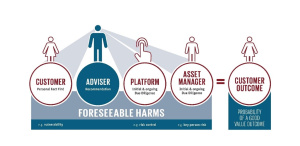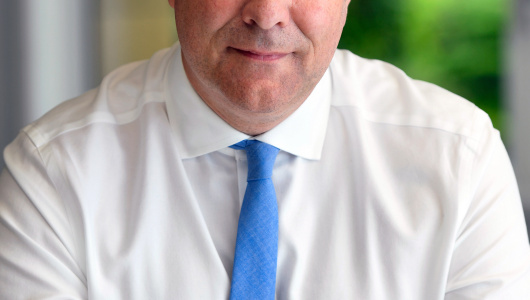
The Consumer Duty has significantly increased the level of rigour the Financial Conduct Authority (FCA) expects from an advice firm’s initial and ongoing due diligence of the investment partners and platform providers it is prepared to recommend to clients.
The FCA expects advice firms to carry out a two-step ‘research and due diligence’ selection process:
Step one: Research of market: “We expect firms to carry out research on… the market to identify the solution(s) in the client’s best interests, then conduct detailed due diligence on the recommended solutions.”
Step two: Due diligence: “In relation to the platform market, we expect firms to carry out research and draw up a shortlist of platform providers, then carry out due diligence on the shortlist. Is it appropriate to entrust the provider with client assets?”
So, how do advisers establish whether a platform can be entrusted with client assets? The FCA expects advisers to consider a wider range of factors than may have been considered previously.
In fact, the FCA has already warned industry players about the potential risks it sees arising from poor governance and oversight, fraud and scams, poor safeguarding of client money and assets, failure to give best execution, inadequate technology and operational resilience, inadequate financial resources and conflicts of interest, among other issues.
The Consumer Duty makes it clear the adviser has the clearest oversight of the customer’s overall position and the recommended advice package, so they must assess the likelihood of delivering the expected outcome to the customer.
This should include an analysis of whether the overall cost to the consumer provides fair value as well as the risk of a foreseeable harm endangering that expected customer outcome.
Specifically, it means the adviser must look along the distribution chain to proactively consider the foreseeable harms of using a particular platform. That includes thinking about what could conceivably go wrong and checking clients would have the appropriate protections in place.
The distribution chain: Adviser oversight of foreseeable harms

Several firms can be involved in the manufacture and distribution of investments, and all can influence customer outcomes. Each must consider foreseeable harms as part of their due diligence of other counterparties in the distribution chain, but the Duty puts the onus on advisers to consider the total cost and value of their recommended advice package, as well as the risk of foreseeable harms that could endanger a good customer outcome.
So, what are some examples of the foreseeable risks advisers need to consider?
- Does the platform have the right governance and risk-management controls in place?
- Could technology issues result in client losses and are there clear lines of accountability and robust client protections in place?
- What are the risks within the technology stack and the operational resilience of the platform?
- What about data security and the ability to withstand fraud and cyberattacks?
- Is the platform financially strong enough to make the significant investments required in technological innovation to remain a leading platform in the future?
- Who is the platform owner and what are their medium-term intentions and incentives? Is the owner comfortable with how much ongoing investment is required in platform technology?
- Might the owner be incentivised to sell the platform should economic conditions change? Who will they sell to? And will this create a potential re-platforming event?
Importantly, the FCA also sees the estimation of foreseeable harms as a dynamic concept: “Firms therefore need to stay abreast of and respond to new or emerging sources of harm, for example through consumer complaints, management information, press reporting and our own supervisory communications.”
All of this demands a new approach. Platform due diligence has become more than the box-ticking exercise it may have been in the past. A deeper dive is expected as well as a more considered analysis of how a platform manages financial, operational and technological risks. It also means thinking differently about financial strength, one of the most critical considerations in the platform market.
Under a dynamic approach to estimating foreseeable harms, financial strength becomes more than a solvency stamp. It means considering the ability to invest in the platform development roadmap. It becomes a strong proxy for the future health of a platform since a platform owner must have the ability to continually invest in functionality, user experience and service. Any platform that cannot invest risks stagnation, acquisition and the potential re-platforming of client portfolios.
There is still a belief among some advisers that if assets sit with a custodian, or if there is a compensation scheme, then financial strength does not matter. Without strong financial support, the risk of business failure is more likely and could, ultimately, lead to a distressing and uncertain route to asset recovery or compensation for investors.
It’s not the experience or outcome any customer would expect. And, under the expectations of the Consumer Duty, entrusting client assets to an evidentially weak platform could be seen as a foreseeable harm.
Jonathan Sandell is group head of proposition at Scottish Widows Platform














@Jonathan Sandell very interesting points. Behind what you say though is the persistent inertia caused by the platforms needing to protect/retain AUM and the resultant nightmare involved in moving clients from one platform to another – much like changing bank accounts in the bad old days. When this becomes seamless (big When) then we’ll see advisers voting with their feet in response to poor service or clunky tech etc etc.
Comparing and contrasting every platform on the market and meeting all the FCA’s due diligence requirements is an IMPOSSIBLY huge task. In fact, not just impossibly huge but plain impossible ~ period. Five huge teams of researchers/analysts/actuaries and who knows who else could spend MONTHS on such a project and you can bet your boots that they’d all arrive at different conclusions. What would the FCA’s armchair theorists have to say about that?
@jonathon sandell “Without strong financial support, the risk of business failure is more likely and could, ultimately, lead to a distressing and uncertain route to asset recovery or compensation for investors.”
Just as much risk associated with well resourced companies coming to market and then:
1) realising their mistake (Macquarie) and leaving clients high and dry before quickly departing the market due t high regulatory costs
2) shutting down and replatforming twice creating havoc in the process without a murmur from FCA regarding client detriment